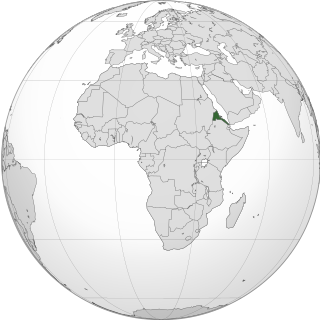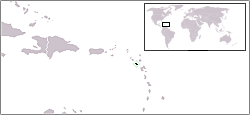
Sexual harassment is a type of harassment involving the use of explicit or implicit sexual overtones, including the unwelcome and inappropriate promises of rewards in exchange for sexual favors. Sexual harassment can be physical and/or a demand or request for sexual favors, making sexually colored remarks, showing pornography, and any other unwelcome physical, verbal, or non-verbal conduct of a sexual nature. Sexual harassment includes a range of actions from verbal transgressions to sexual abuse or assault. Harassment can occur in many different social settings such as the workplace, the home, school, or religious institutions. Harassers or victims can be of any gender.

The Equal Pay Act 1970 was an act of the Parliament of the United Kingdom that prohibited any less favourable treatment between men and women in terms of pay and conditions of employment. The act was proposed by the then Labour government, and was based on the Equal Pay Act of 1963 of the United States. It has now been mostly superseded by part 5, chapter 3 of the Equality Act 2010.
Robichaud v Canada (Treasury Board), [1987] 2 S.C.R. 84 is a leading case decided by the Supreme Court of Canada on sexual harassment under the Canadian Human Rights Act. The Court found that a corporation can be found liable for the discriminatory conduct of its employees who are acting "in the course of their employment." It also found it necessary to impose liability, as the employer is the only one that is in the position to remedy the discriminatory conduct.
United Kingdom employment equality law is a body of law which legislates against prejudice-based actions in the workplace. As an integral part of UK labour law it is unlawful to discriminate against a person because they have one of the "protected characteristics", which are, age, disability, gender reassignment, marriage and civil partnership, race, religion or belief, sex, pregnancy and maternity, and sexual orientation. The primary legislation is the Equality Act 2010, which outlaws discrimination in access to education, public services, private goods and services, transport or premises in addition to employment. This follows three major European Union Directives, and is supplement by other Acts like the Protection from Harassment Act 1997. Furthermore, discrimination on the grounds of work status, as a part-time worker, fixed term employee, agency worker or union membership is banned as a result of a combination of statutory instruments and the Trade Union and Labour Relations (Consolidation) Act 1992, again following European law. Disputes are typically resolved in the workplace in consultation with an employer or trade union, or with advice from a solicitor, ACAS or the Citizens Advice Bureau a claim may be brought in an employment tribunal. The Equality Act 2006 established the Equality and Human Rights Commission, a body designed to strengthen enforcement of equality laws.

The Employment Equality Regulations 2003 were secondary legislation in the United Kingdom, which prohibited employers unreasonably discriminating against employees on grounds of sexual orientation, perceived sexual orientation, religion or belief and age.

Lesbian, gay, bisexual, and transgender (LGBT) people in Eritrea face severe challenges not experienced by non-LGBTQ residents. Homosexual acts are illegal in Eritrea; typically punishable by up to three years in prison. LGBT persons are reportedly prosecuted by the government and additionally face hostility amongst the broader population.

The Equality Act 2010, often erroneously called the Equalities Act 2010, is an act of Parliament of the United Kingdom passed during the Brown ministry with the primary purpose of consolidating, updating and supplementing the numerous prior Acts and Regulations, that formed the basis of anti-discrimination law in mostly England, Scotland and Wales; some sections also apply to Northern Ireland. These consisted, primarily, of the Equal Pay Act 1970, the Sex Discrimination Act 1975, the Race Relations Act 1976, the Disability Discrimination Act 1995 and three major statutory instruments protecting discrimination in employment on grounds of religion or belief, sexual orientation and age.

Pearce v Mayfield Secondary School Governing Body and Advocate General for Scotland v MacDonald [2003] UKHL 34; [2003] IRLR 512 is a UK labour law case concerning sexuality and sex discrimination. It was decided before the new Employment Equality Regulations 2003.

Lesbian, gay, bisexual, and transgender (LGBT) persons in Montserrat face legal challenges not experienced by non-LGBTQ residents. Same-sex sexual activity has been legal in Montserrat since 2001.
Harassment covers a wide range of behaviors of offensive nature. It is commonly understood as behavior that demeans, humiliates, and intimidates a person, and it is characteristically identified by its unlikelihood in terms of social and moral reasonableness. In the legal sense, these are behaviors that appear to be disturbing, upsetting or threatening. Traditional forms evolve from discriminatory grounds, and have an effect of nullifying a person's rights or impairing a person from benefiting from their rights. When these behaviors become repetitive, it is defined as bullying. The continuity or repetitiveness and the aspect of distressing, alarming or threatening may distinguish it from insult, It also constitutes a tactic of coercive control, deployed by an abusive spouse in a context of domestic violence. Harassment is a specific form of discrimination, and occurs when a person is the victim of unwanted intimidating, offensive, repeated or humiliating comments or behavior. To qualify as harassment, there must be a connection between the harassing behavior and a person's protected personal characteristics or prohibited grounds of discrimination, and the harassment must occur in a protected area. Although harassment typically involves behavior that persists over time, serious and malicious one-off incidents are also considered harassment in some cases.

The Yogyakarta Principles is a document about human rights in the areas of sexual orientation and gender identity that was published as the outcome of an international meeting of human rights groups in Yogyakarta, Indonesia, in November 2006. The principles were supplemented and expanded in 2017 to include new grounds of gender expression and sex characteristics and a number of new principles. However, the Principles have never been accepted by the United Nations (UN) and the attempt to make gender identity and sexual orientation new categories of non-discrimination has been repeatedly rejected by the General Assembly, the UN Human Rights Council and other UN bodies.

Lesbian, gay, bisexual, and transgender (LGBT) persons in Macau, a special administrative region of China, face legal challenges not experienced by non-LGBT residents. While same-sex sexual activity was decriminalized in 1996, same-sex couples and households headed by same-sex couples remain ineligible for some legal rights available to opposite-sex couples.
Workplace harassment is the belittling or threatening behavior directed at an individual worker or a group of workers.

Ladele v London Borough of Islington [2009] EWCA Civ 1357 is a UK labour law case concerning discrimination against same sex couples by a religious person in a public office.
Hosanna-Tabor Evangelical Lutheran Church and School v. Equal Employment Opportunity Commission, 565 U.S. 171 (2012), was a United States Supreme Court case in which the court unanimously ruled that federal discrimination laws do not apply to religious organizations' selection of religious leaders.
Macarthys Ltd v Smith (1980) Case 129/79 is an EU law, UK constitutional law and UK labour law case, concerning the construction of a sex discrimination statute, and its compatibility with European treaties, now in the European Union.

Jane Maria Collins is a British politician and horse show-jumper who served as a Member of the European Parliament (MEP) for Yorkshire and the Humber from 2014 to 2019. She was elected in May 2014 as a member of the UK Independence Party (UKIP), but defected to the Brexit Party in 2019 in the last months of her membership of the European Parliament.
The lifetime prevalence of domestic violence in Saudi Arabia is estimated to be between 20%-39% for women, depending on the region in which they live. A 2015 study found that 20% of women visiting primary care centers in Riyadh had experienced domestic violence in the past year.
The law for workplace bullying is given below for each country in detail. Further European countries with concrete antibullying legislation are Belgium, France, and The Netherlands.